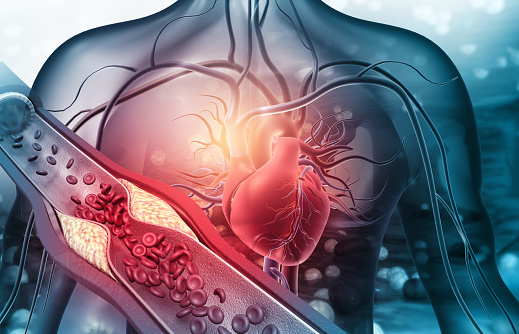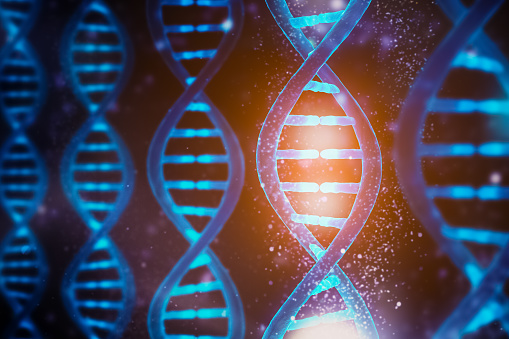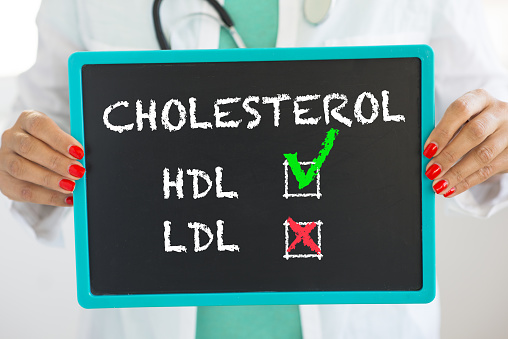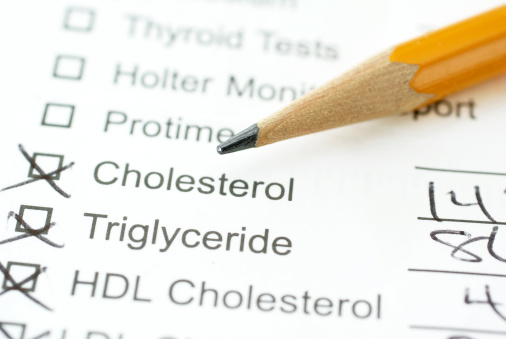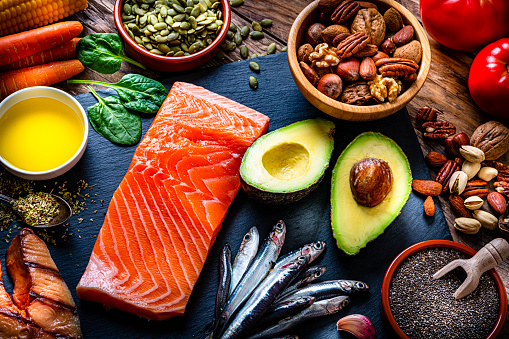Does following a low carb high fat diet like the ketogenic diet, cause your cholesterol to go up, and if it does, is that a bad thing? In this article we're going to assess the benefits and the risks from eating saturated fat and cholesterol on your keto diet. And we're going to review the specific lab markers to request from your doctor to know whether or not keto is working for you.
Hey, Keto Kamper, Ben Azadi here, best selling author of four books & founder of Keto Kamp where our mission is to educate and to inspire 1 billion people.
Previously, in our ten-part series we've covered the very important details around the history of Keto and nuances that define clean keto foods & dirty keto foods, how to deal with common symptoms of keto - like the Keto flu, brain fog & fatigue, the specifics around the macros and calories on keto and the five signs to look for to know if you’re in ketosis & fat adapted and more. So if you haven’t already caught up on the previous articles, I highly recommend it.
Here we're going to talk about cholesterol. There are so many myths regarding cholesterol and saturated fat and we're going to debunk a lot of these myths.
Before we do, I have a question for you, the question of the day. Has your doctor told you that you have high cholesterol and has your doctor recommended something like a statin? Let me know by commenting in the section below.
A very common question I get is, “will my cholesterol go up on a ketogenic diet?” My response is, maybe, but is it a bad thing if it does? Why does cholesterol have such a bad rap, why does it have such a poor PR team?
I recommend reading Nina Ty Schultz book called "The Big Fat Surprise”, if you want to learn more about the history of cholesterol, why it has such negative publicity and how the work of Ancel Keys led to, among other things, the creation of the World War II ‘K-Ration’. Ancel Keys was the author of what is know as the “Seven Country Study”, which deliberately excluded research from 16 countries that did not support the narrative of his theory. He's one of the main influencers in the popularization of trans fats, margarine, low fat and fat free.
Well, here’s the deal on how Ancel Keys faked it. He concluded, with a portion of his research, that six countries had high amounts of heart attacks due to the high amount of cholesterol they consumed. But, they were consuming rancid fats. He also didn't share that he surveyed a total of 22 countries, and that the majority of the findings did not support his conclusion, conveniently excluded the data, essentially fooling the world in the process. And we're still dealing with his false data.
The reason Ancel Keys and a lot of people say cholesterol is bad, is a result of autopsies done on heart attack victims in which these heart attack victims show a lot of cholesterol build up in the arteries. Therefore, concluding, that the cholesterol is what caused the damage. Is that true? Well, I don't think it is. In fact, I know that it's not because that's like saying “Every time we see a building is on fire, we also see firefighters there, that must mean the fire fighters are the cause of fires in buildings!” We know that’s not true. Firefighters are there to protect and help with the fire (inflammation) - to put out the fire, firefighters are healing, they’re a bandaid - the firefighters are helping with the problem which is the fire (inflammation).
So when we see think of cholesterol, we have to remember that cholesterol is a band aid, cholesterol is a healer. There are many, many important reasons why we love cholesterol in the body.
A study reported in Science News showed that, in most heart attack patients, their cholesterol level did not correlate with heart attack or cardiac risk. A separate study in Harvard showed that more people die from heart disease with normal to low cholesterol, than with high cholesterol. If you’re like me, you’re probably wondering “What!? How is that even true? Why isn’t the media talking about this? Why isn’t my doctor talking about this?”
We know there are four main purposes cholesterol serves in the body. I'm going to break them down for you right now.
#1. The fact is that cholesterol is a building block of your hormones. Look, if you want to burn fat, feel good, have healthy hormones then eat quality cholesterol and non rancid fats, which I'll talk more about a little bit later. Your brain is mostly fat! Cholesterol, LDL cholesterol makes your sex hormones, cell membranes are also made of protein saturated fat and cholesterol. We have over 600 hormones in the body. Hormones are simply chemical messengers sending signals to your cells, docking on their receptor sites, also knowns as, integral membrane proteins. When functioning properly, the message goes into your cells, your cells produce energy, your mitochondria burns fat, and you feel good. So if you deprive your body of cholesterol, this process will not work efficiently.
#2. As I mentioned, your cell membrane is made up of cholesterol, protein and saturated fat. The cell membrane is the key to health. Dr. Daniel Pompa, my coach and mentor says it all the time, “life begins and life ends at the cell membrane”. The cell membrane is a lipid bilayer around each of your 70 trillion cells that protects your cells. It is the body guard of your cells. It allows good things in and it allows bad things out. It tells your genes to turn on good genes and it tells your genes to turn off bad genes.
That's correct. You could control your genetics. You cannot change your genes but you can control whether or not you want to turn on or turn off genes. So think of genes as a light switch to turn on and turn off. What communicates to your DNA nucleus is, the cell membrane.
So when you eat quality fats and give your cell membranes the appropriate building blocks, this process works the way it is designed to work, the way that God created us. Your brain is also made up of cholesterol as well as your nervous system. We know that at least 60% of the brain is fat, so when somebody says “hey, fat head!”, say “thank you so much, I know I'm very smart and I’m designed this way.” haha!
Fat is important for your brain to function. Think about this, breast milk is made up of saturated fat and cholesterol, because it helps the development of the brain. Breastfed babies go in and out of ketosis, because breast milk is mostly saturated fat and cholesterol.
#3. Cholesterol helps make bile and vitamin D. Why is bile important? Well, when you’re eating fats on keto, which should be quality fats, bile is what helps break down the fat, like a detergent, it helps break down the fat and assimilate those fat soluble vitamins. Vitamins, A, D, E and K. By the way, the number one reason people feel like crap on keto is they can’t make healthy bile, well, cholesterol helps you make healthy bile. Bile also helps eliminate toxins and cholesterol also helps your body synthesize and create vitamin D, which impacts your blood pressure, immune system, mood, brain function, the ability to protect against certain cancers and your skeletal structure. Vitamin D is actually a precursor to a particular type of steroid hormone within the body. We should not be afraid of cholesterol.
So how do you test for cholesterol?
When it comes to measuring your cholesterol, it's important to understand, cholesterol cannot freely move through the body, it needs to be carried in a vehicle, a particle. These particles are called LDL particles. Now, LDL has been coined ‘the bad cholesterol' but that's not necessarily true. Nothing in the body is black and white. It’s very important to understand that our bodies are very complex. Yes, it’s important to get your LDL measurements done but the particles are what's really important when assessing your risk of heart disease.
When your doctor measures your LDL and says, you have high LDL, therefore we need put you on a statin. What your doctor is measuring is the amount of cholesterol within an LDL particle.
Your doctor is going to say you have high LDL. If you have low cholesterol within a certain particle, your doctor is gonna say you have low LDL, but this is not important.
Imagine a vehicle two passengers stuck in a traffic jam on the highway. What's more important in that traffic jam, the number of people inside the vehicle, (the number of cholesterol inside of the particle) or the number of cars on the road. Of course, the number of people within the vehicle is irrelevant to the traffic jam. What's more important is the number of cars on the road.
Same thing goes for your cholesterol LDL particles, the total amount of LDL is irrelevant.
We want to know how many particles are on the road. Because just like this analogy, the more vehicles on the road on the highway, the more oxidative stress from the car fumes, the more accidents that will occur, the more damage that is done. Same thing with your LDL particles if you have too many particles, especially the small and sticky ones that are going to break down, it can cause inflammation in your arterial wall leading to heart disease.
So it's important to measure your LDL particles which are split into two different categories - large and fluffy LDL, and small & sticky particles.
If you have a ton of large and fluffy LDL particles in your artery, these are actually good particles that could actually help clear up plaque as they go through the arteries, they're not a problem. But if you have a lot of small and sticky particles, those get lodged into the arterial wall that can lead to problems, especially if you also have inflammation present with those small and sticky particles, because the inflammation will drive those small particles to your arterial wall as a way to kind of clean it up and repair it.
Remember the firefighter analogy, cholesterol is there to repair the problem. So we want to make sure we're measuring both particles.
Let's get into some more of these measurements. I'm going to give you the optimal ranges for this and other markers to assess. Here's what I want you to do, get your total cholesterol diet. Pay attention to the following general markers, which I'll explain and I encourage you to write them down, and compare your results.
We ideally want women’s total cholesterol to be about 250 or lower and for men it should be about 220 or lower. These are just general terms. Remember total cholesterol doesn't mean much if we’re not looking at the full spectrum.
Measure the particles via what’s known as the NMR test or “Nuclear Magnetic Resonance”. This test is looking at your LDL particle sizes. We want our LDL P to be less than 1000 and our small LDL to be less than 500.
Then we want to look at our HDL which is high density lipoprotein. This is very protective. We want our HDL to be 70 or higher. That's optimal. Our triglycerides, we want that to be 100 or less or even better under 70.
We also want to look at our triglyceride to HDL ratio. What we do is divide the total triglycerides by HDL, and if you have greater than six, this could be a problem. Two or less is optimal.
These are the markers that I want you to test for.
Next we also want to look at your inflammatory markers, because it's not just your lipid profile/ cholesterol profile that's important. It's also putting that in the perspective of how much oxidative stress is in your body.
Here are the inflammatory markers that I test on myself and I recommend to the members of the Keto Kamp Academy. We want to look at high sensitivity C reactive protein. This is a great marker to assess your risk of a cardiovascular event. Optimal is less than one even better less than point five. We also want to look at homocysteine which is inflammation in your arterial wall but also in the brain. We want this to be less than 10, optimally less than five.
Then we want to look at our A1C, which is your three month average of your fasting glucose or I should say your glucose in general and you want to maintain a fasting glucose of around 72 to 90. We want to look at your A1C and we want to keep it below 5.2. Then we want to look at your fasting insulin and keep that below 10
If you're hitting those numbers, then you're not driving these cholesterol particles into your arteries to create problems.
The question is often asked, "What about eggs, avocados, coconut oils - these drive my cholesterol up.” They might like they do for me, but they drop my inflammatory markers. So as long as you're seeing that trend, like when I see that trend, I love that trend.
Eggs will not cause heart disease, quality healthy fats like coconut oil avocados, grass fed beef, wild caught fish, healthy, stable, saturated fats will not lead to heart disease.
What will lead to heart disease? I'm glad that you asked. Vegetable oils and high carbohydrate, high sugar, processed foods, will lead to heart disease. That means we don't want to consume things like canola oil, grapeseed oil, cottonseed oil, soybean oil. We don't want to eat high carbs. We don't want to eat a whole bunch of processed foods because that will lead to heart disease that will lead to issues with your health.
Now you understand the root cause of heart disease. It is not healthy fats that you're having on keto. those healthy fats are actually reducing inflammation. It's actually these inflammatory fats. It's the high sugars, high carbohydrates, these processed foods that are the real culprit.
Something else I know you're wondering is how is eating fat going to help you lose fat? A lot of people believe that fat makes you fat. Is that true? Well in the next article, I break down how keto works with weight loss and how you can achieve amazing fat loss benefits when you follow keto the right way. So if you want to learn how to use keto as a powerful fat loss tool, click this link right here.
Click the play button below to watch me breakdown this topic in video format.

